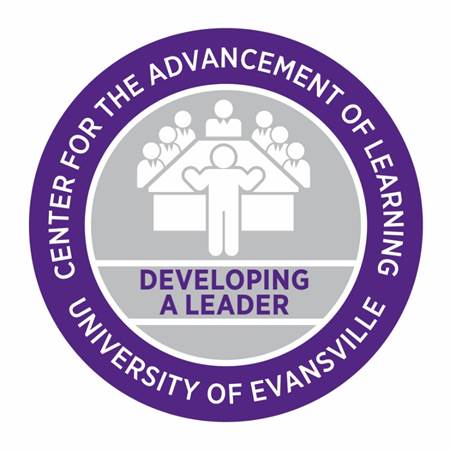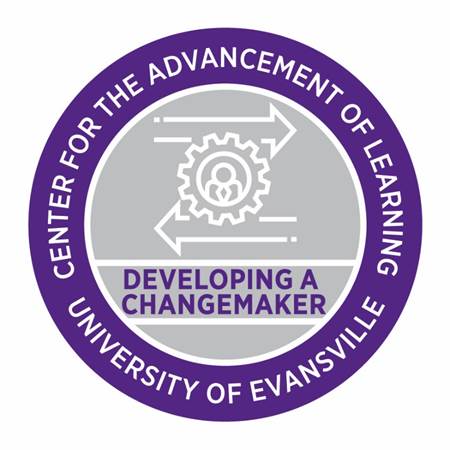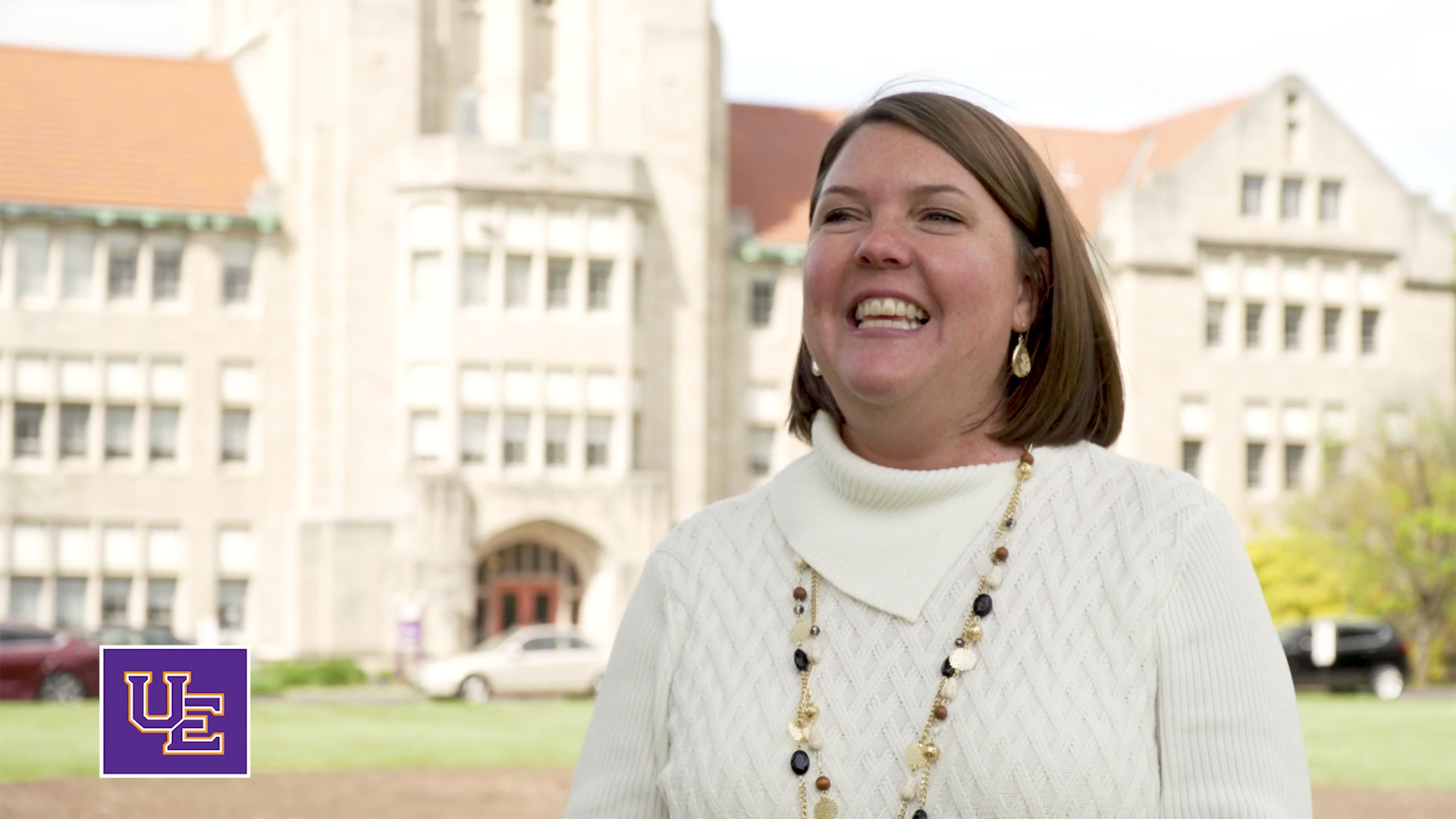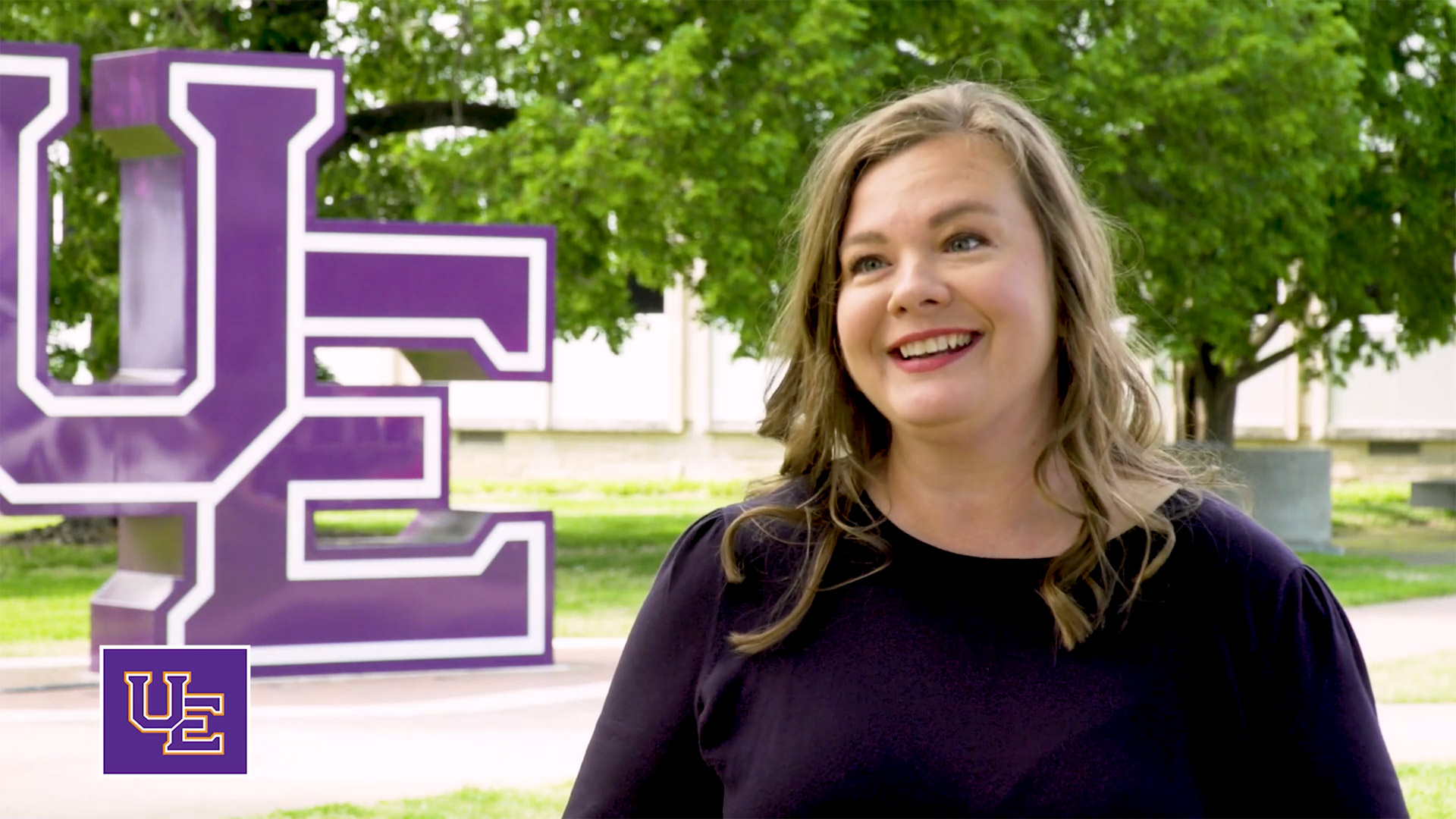BS in Organizational Leadership
Leading Change
Accelerated, Online Program
The Organizational Leadership program is a fully online, interactive program that offers two distinct pathways for degree completion:
- Pathway 1 is for adults who have already earned an Associate of Arts or Associate of Science with 60 transferable credit hours and can be completed in two years.
- Pathway 2 is for adult students who have not earned any previous college credit or have a limited amount of credit earned.
Experience Matters
The University of Evansville recognizes the value of college-level learning acquired outside traditional higher education. Through the Organizational Leadership degree program, adult students may apply for up to 30 credit hours of Credit for Prior Learning (CPL) based on their professional, military, training, or community experiences.
Students work closely with an advisor to develop and submit the portfolios that document their prior learning and align with courses within the university curriculum. To be eligible for CPL, students must be admitted to the program and submit a portfolio for review for each course for which CPL is requested. A standard fee applies to both the portfolio assessment and any college-equivalent credit awarded.
Credits earned through CPL do not count toward the 48-credit hour minimum required to be completed at the University of Evansville to earn a degree. Additionally, all general education and program-specific degree requirements must still be met.
One-on-one, Personal Attention
The University of Evansville is known for personal attention, and these programs will be no different. We understand It can be intimidating to come back to school as an adult. That’s why you’ll work with an advisor throughout the program to achieve your goals.
Affordable
The University of Evansville has an excellent reputation for a high value education at an affordable price. You’ll be pleased to find our adult undergraduate degree completion programs competitively and affordably priced, without compromising on the high-quality education all UE students experience. Current tuition rates are available on our Student Financial Services webpage.
Earn a Badge along the way!
Students that complete certain courses can share the skills or achievement obtained by earning a digital badge.
Badges within Organizational Leadership Program
Definition of Badging: Representation of a skill or achievement
Developing a Leader
Applying skill sets obtained in coursework:

- OL 310-fostering relationships and motivating and empowering others
- OL 322-leading ethically in a changing environment
- OL 422-leading a team through continuous development focusing on conflict and creative problem-solving
Developing a Changemaker
Applying skill sets obtained in coursework:

- CHNG 280-leading innovatively while working through social and environmental problems
- CHNG 330—leading organizations through social change and social innovation while understanding the role as a global citizen
- OL 420-leading and thriving in a global environment focusing on ethics, social responsibility, law and technology
Requirements
When you’re ready to apply, here are the requirements and documents you’ll need to get started.
- Official college transcripts.
- Complete application.
- Résumé reflecting any working experience.
Program Learning Outcomes
- Demonstrate social responsibility with a global perspective.
- Develop strategic thinking and problem solving skills for leading teams effectively.
- Lead change within organizations and community.
- Develop analytical and decision-making skills for dealing with complex conceptual issues ethically and responsibly.
- CHNG-280 - Social Entrepreneurship
This course will explore the motivation for social entrepreneurship and the various forms of social ventures. Social entrepreneurship will be contrasted with traditional models of charity and social assistance. This course will examine successes and failures of social ventures, emphasizing how business strategies and market principles can be used to achieve social goals in ways that are self-sustaining. Students will propose projects that identify new, innovative approaches to address social and environmental problems.
- CHNG-330 - Transformative Action
This is a course in which students propose their own social innovation project. Projects are completed in teams guided by a coach. Competencies are developed in social innovation, empathy, creative problem-solving, design thinking, story-telling, project management, teamwork, and presentation skills. Students draw upon diverse team member strengths to create impact on a social or environmental issue.
- FYS-312 - Writing Across the Disciplines
First Year Seminar for transfer students. Engages students in classroom activities that promote the acquisition of critical reading, writing, and thinking skills appropriate to college-level discourse. Toward that end, students will learn the basics of the expository essay: development of a central thesis, organization of material, and responsible use of supporting detail. Additionally, they will explore a variety of genres as well as writing practices and conventions for disciplines across the university.
- OL-300 - Adult Learner
Introduction of characteristics, theories, and practices of adult development and learning. This course examines basic assumptions about producing competent, flexible adults who are able to apply knowledge in a changing environment.
- OL-310 - Applied Leadership
Introduction to fundamental concepts of leadership. Emphasizes supervisor's roles, fostering relationships, and motivating and empowering others.
- OL-311 - Quantitative Skills for Leadership
Emphasizes critical thinking about numerical data: percentages, ratios, solving equations, computing and interpreting means, medians, modes, and standard deviations.
- OL-312 - Human Behavior in Organizations
Study of social and psychological factors that influence the supervision of groups and individuals in work settings.
- OL-320 - Persuasive Written & Oral Communication
Emphasis on developing and refining practical written and oral presentation skills. Writing intensive course.
- OL-321 - Principles and Issues of Human Resources
Study of theories, principles, and practices involved in organizing, supervising, and leading others. Emphasis on communication, motivation, leadership, evaluation, and compensation of human capital.
- OL-322 - Leadership Ethics
Survey of controversial issues, dilemmas, and quandaries encountered in contemporary society. Emphasizes fundamental norms of conduct in organization and ethical issues that affect them, including employee-employer relations, consumer advertising, and the environment.
- OL-330 - Supervision
Development of essential supervisory skills by increasing the students' thinking and knowledge to application. Considers the unique challenges of the 21st century.
- OL-350 - Leadership Practicum
Emphasizes practical application of concepts, theories, and practices of leaders. Students design and implement a problem-solving research project through integration with prior and concurrent course work. Includes class presentations, simulations that combine knowledge and skill.
- OL-360 - Leadership Practicum
Emphasizes practical application of concepts, theories, and practices of leaders. Students design and implement a problem-solving research project through integration with prior and concurrent course work. Includes class presentations, simulations that combine knowledge and skill.
- OL-410 - Leadership: Conflicts and Change
Examines impact of conflict, stress, and change in organizations. Emphasizes ability of an organization to monitor itself to determine need for change in appropriate areas. Participants examine effective change strategies.
- OL-411 - Leadership: Strategic Decision Making
Study of best practices in decision-making. Approaches to leadership such as power-influence, situational factors, individual traits, and behaviors are explored as models of decision-making theory. Students required to apply decision-making strategies throughout course.
- OL-412 - Customer Development and Leadership
Fundamentals of developing a strong customer base. Emphasis on methods, tools, skills, and techniques required to develop, manage, and market to customers. Considers both external and internal customers.
- OL-420 - Global Issues Seminar
Studies issues involved in living and working in a global environment. Explores topics such as ethics, social responsibility, law, and technology in the international arena.
- OL-421 - Organizations: a Strategic Approach
Principles of planning, organizing, directing, and controlling the management process. Models, simulations, and case studies used to develop skills in setting goals.
- OL-422 - Leadership: Individual & Team Processes
Examines team process and leadership including team development, the importance and challenge of team member diversity, maximizing team creativity, problem-solving, handling team conflict, and revitalizing a passive or complacent team. Also emphasis on leading and managing virtual teams and the unique differences.
- GL-430 - Technology for Leaders
Teaches specific software applications in an applied setting. A survey of technology tools available to professionals, includes positive and negative attributes of modern technologies with real-world examples.
- OL-460 - Leadership Practicum
Emphasizes practical application of concepts, theories, and practices of leaders. Students design and implement a problem-solving research project through integration with prior and concurrent course work. Includes class presentations, simulations that combine knowledge and skill.
Contact us at cal@evansville.edu to learn more about program requirements and get started today on your journey!
Office Phone
812-488-2981
Office Email
cal@evansville.edu
Office Location
Room 264, Clifford Library
Office Hours
8:00 a.m. to 4:30 p.m. CDT



